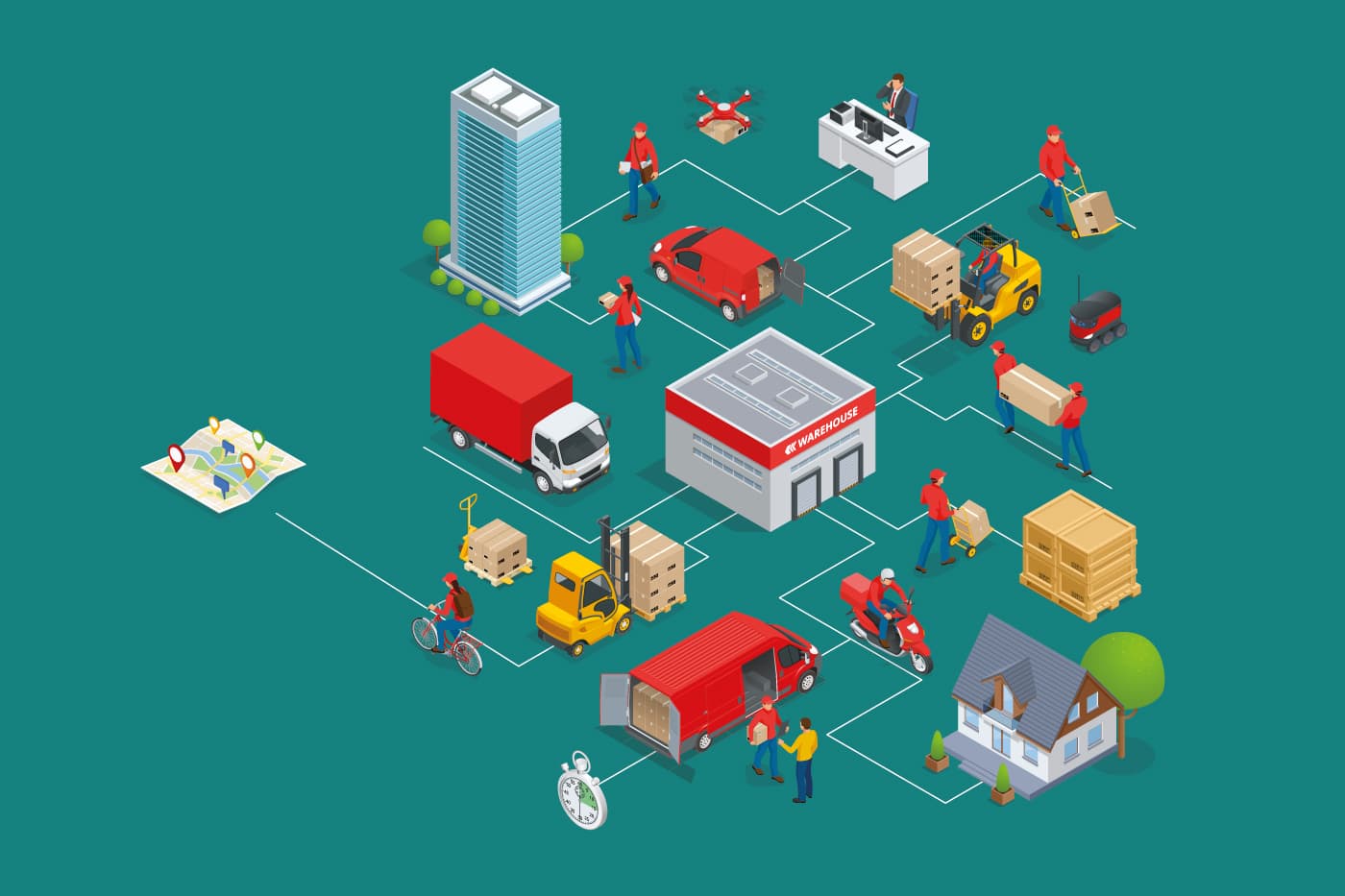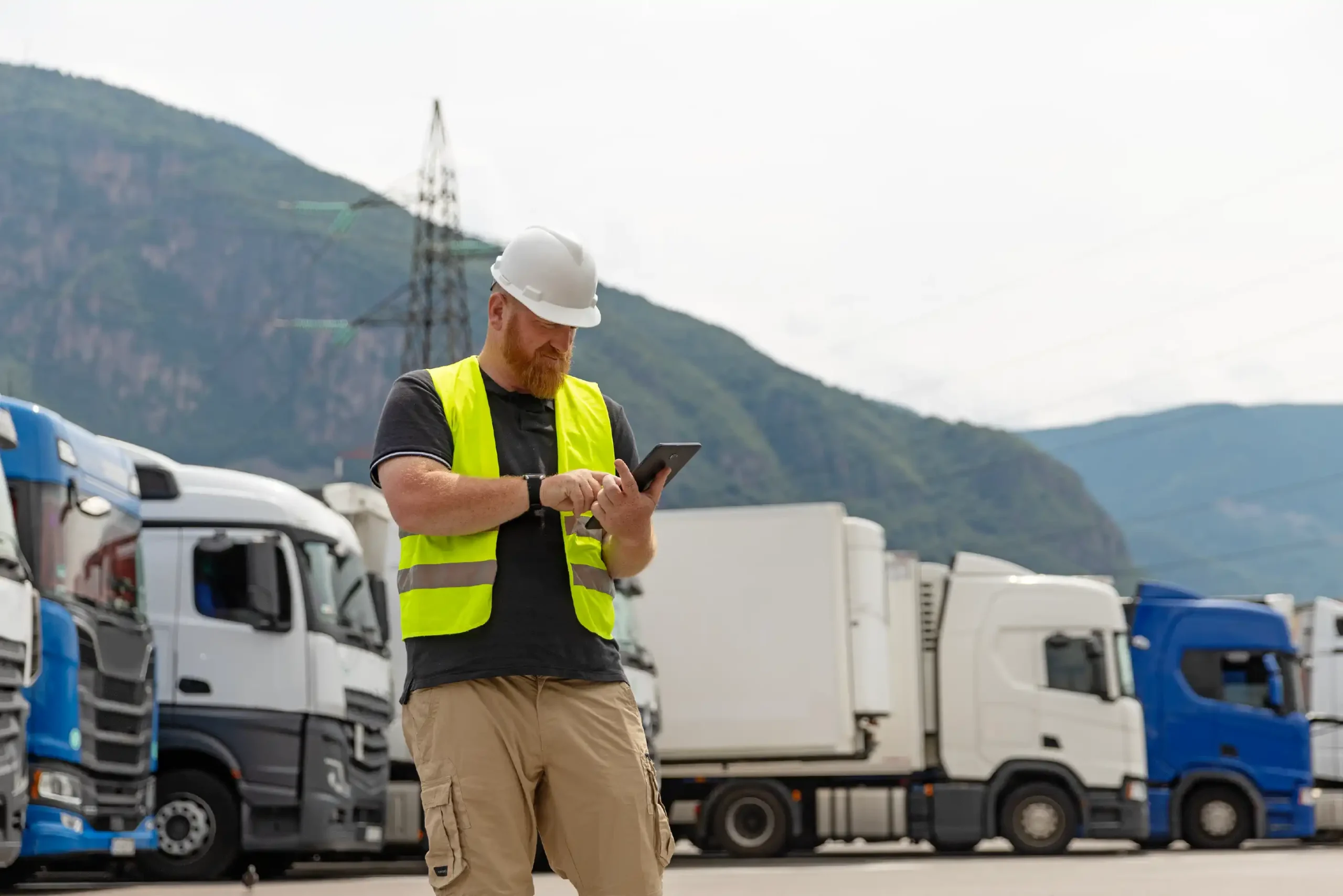Emerging trends in logistics 2021


The healthcare crisis has had a brutal impact on society and the economy around the globe. This has also been the case in the field of logistics, where a number of trends are emerging within the logistics and transportation field as supply chain management attempts to adapt to a time dominated by uncertainty.
Since mid-March 2020, the situation has changed radically to the point of calling into question axioms that until a few months ago seemed truly settled and immutable.
In the past, logistics management focused on agility and the reduction of redundant processes in order to reduce costs and facilitate the arrival of products to different markets in ever shorter times.
With the arrival of the pandemic, the agile supply chain management model, typical of just-in-time services, has been overtaken by a new situation that is totally unexpected and that makes to look towards other trends that are gaining momentum and that allow adapting supply chain operations to a different reality. to the existing one until March 2020.
As a result, a number of trends are emerging that focus on addressing new risks through the intensive use of technology, in an attempt to provide service during a process of transformation in consumer habits.
According to a survey conducted by Gartner in the middle of last year, only 21% of respondents have a resilient supply chain. This low percentage reflects the fact that there is ample scope for enhancing logistics management capable of adapting to changes quickly and responding quickly to any incident.
Resilient supply chains seek to adapt with tactical measures to a changing and uncertain reality as left by the current scenario.
A resilient supply chain can only be achieved through complete visibility of all the links in the supply chain.
Real-time visibility provides a control tower from which to have precise information on everything that happens in the chain and to adapt management to the changing market environment.
Real-time management makes it possible to react quickly to any risk that may affect the supply chain. To do this, the flow of data must be channeled in an efficient manner to generate relevant information that can be used to generate a reaction.
In the same vein, the automation of data management will allow, according to a McKinsey report last year, the development of logistics As a Aervice (SCaaS-Supply Chain as a Service) as a business option.
In recent years, logistics has become an activity with a high technological component. Integrating Big Data, IoT, Blockchain, AI, etc. into their business processes Apart from moving goods, the supply chain moves a huge volume of data of high strategic value for companies.
Intensive use of new technologies can reduce costs, improve equipment and personnel performance and, most importantly, provide added value to the customer in the form of accurate, real-time information about the goods.
The automation of data management will make it possible to develop a Supply Chain as a Service.
The pandemic has highlighted the importance of human capital so that logistics management has developed a fundamental role in guaranteeing the supply of the population.
The personnel of logistics and transportation companies have acted on the front line as essential personnel.
Without well-trained personnel, technology cannot develop its full potential. In addition, a company’s human team is its face before customers, the yardstick by which the reliability and efficiency of any company is measured.
Sustainability is a major social challenge that also has a correlative impact on logistics management.
The pandemic has not only not slowed down the logistics sector’s commitment to more environmentally responsible operations, but has actually boosted them, in line with increased social pressure.
The energy transformation in vehicles is accompanied by the development of energy-saving halls and warehouses. Similarly, more and more companies are aiming for a carbon-neutral supply chain over the next two decades.
In addition to implementing 100% paperless transport operations, with 100% digital documentation processing and with total legal guarantee through the digitalization of delivery notes, document scanning, digital signature, eCMR and contactless processes.
The health crisis has demonstrated the great importance of proper risk management. There has long been a motto in logistics that any supply chain is only as strong as its weakest link.
As Harvard Business Review points out in a recent article, the big challenge for companies right now is to achieve resilient supply chains, but without losing the competitiveness that previous agile logistics management brought.
To this end, companies must develop policies for managing the risks and threats that threaten the transport chain, in order to establish preventive measures to avoid interruptions in the logistics flow and corrective actions to deal with possible security impacts.
FIELDEAS Track and Trace provides the end-to-end supply chain visibility you need to anticipate delivery movements through predictive information on all your operations.
You will be able to manage the supply chain with the agility that logistics management requires in this era that is opening up after the covid-19 pandemic, in line with the trends that are opening up in logistics and transportation.

12 Feb 2026
The 6 essential data of the road freight transport control document
The road transport control document data is the key point of the digitalization required by the Sustainable Mobility Act. This means that beyond the format and the design or title…

05 Feb 2026
In-transit verification of the Digital Control Document for road transport; what should be taken into account?
The Digital Control Document for road transport represents a breakthrough in terms of efficiency, traceability and security. However, it also generates doubts and concerns, especially due to the fear of…

29 Jan 2026
Frequently asked questions (FAQs) on road transport documents
Numerous road transport documents are used in day-to-day road freight transport: control document, consignment note, CMR, delivery note, stowage form, waybill… All of road transport documents are relevant, but not…

23 Jan 2026
No-code electronic form: efficiency for companies with field operations
For companies operating in the field, achieving high levels of efficiency and competitiveness is an additional challenge, as digitizing processes becomes even more relevant. In this scenario, the electronic form…